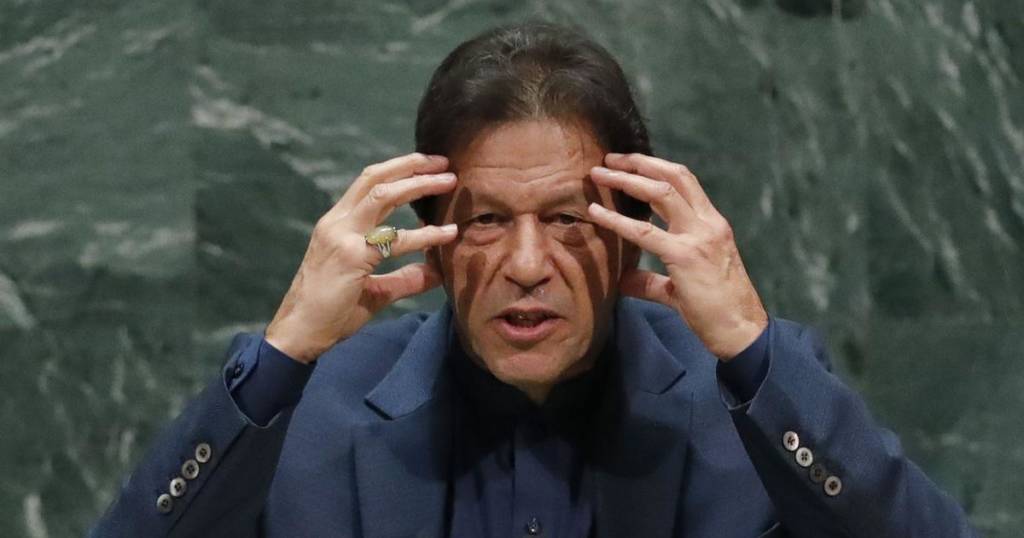Pakistan’s geopolitical ambitions are getting crumbled under the weight of its terror infrastructure. On Friday, Islamabad imposed sanctions on Afghanistan’s Taliban amongst several other terror groups in a bid to avoid getting blacklisted by the Paris-based watchdog, Financial Action Task Force (FATF).
The sanction orders have recognised several individuals including Taliban chief negotiator Mullah Abdul Ghani Baradar and several members of the Haqqani Network, including its chief and Taliban deputy head, Sirajuddin Haqqani. Pakistani sanctions on Afghan Taliban are the precursor of a major fall-out between Islamabad and the Taliban, effectively marking the end of Pakistani influence in Afghanistan.
The fact remains that Pakistan never enjoyed strong relations with the civilian government of Afghanistan. Islamabad was betting heavily on the dominance of the Afghan Taliban over the Ashraf Ghani administration to exercise influence in Kabul.
Pakistan was using the ISI and Lashkar-e-Taiba to maintain deep ties with the Afghan Taliban and attack Indian interests in the war-torn country. Pakistan’s intelligence-terror nexus was therefore constantly looking to undermine India’s rebuilding efforts in Afghanistan. As such, Islamabad’s strategy till now was to make common cause with Taliban- toppling the civilian government in Kabul.
But things might start changing now as Pakistan has sanctioned the Afghan Taliban. Pakistan, of course, doesn’t have a choice here because it is already on the FATF grey-list, and if it gets blacklisted, its international borrowing capacities would be severely hampered. Pakistan’s troubled economy wouldn’t be able to sustain a serious jolt like FATF blacklisting. According to Al Jazeera, officials say that they are trying to get Pakistan off the grey list.
Taliban leaders haven’t given an immediate response to Pakistan’s latest sanctions against them. But Pakistan is a safe haven for terrorists, many of the Taliban’s leaders and even its proxy militant organisations have businesses and properties in Pakistan. Even the Haqqani Network’s top brass has enjoyed Pakistan’s goodwill since the days of US-led crusade against the erstwhile Soviet Union in Afghanistan.
However, even after the US-led coalition had fallout with the Taliban in 2001, Islamabad continued harbouring the Afghan Taliban on its own soil. Pakistan was repeatedly accused by both Kabul and Washington of offering a sanctuary to the Afghan Taliban. It is in such context that Pakistani sanctions on the Taliban become a turning point in the Islamabad-Afghan Taliban nexus.
To be precise, Pakistan and the Taliban have already fallen apart because of Imran Khan’s Kashmir agenda. Over the past one year or so, Pakistan has exhorted the Taliban to take up the Kashmir issue several times, but the Taliban has refused every single time. Earlier this year, the Taliban clarified that it would not join Pakistan-sponsored terrorism in Kashmir, because it “does not interfere in internal affairs of other countries”.
Suhail Shaheen, the spokesperson for the political wing of the Taliban had said, “The statement published in the media about Taliban joining Jihad in Kashmir is wrong…. The policy of the Islamic Emirate is clear that it does not interfere in the internal affairs of other countries.”
Taliban’s refusal to focus its energies on Kashmir came as a bolt from the blue for Pakistan. Taliban recognises that India is the single largest contributor to the reconstruction efforts in war-ravaged Afghanistan and Taliban feels that New Delhi has a critical role to play if the militant group manages to topple the civilian government. Pakistan, on the other hand, has nothing material to offer.
If Pakistan was pinning its hopes on the withdrawal of US troops from Afghanistan, then Islamabad’s plans have gone to the dogs. Two factors illustrate the growing differences between Pakistan and the Afghan Taliban- the latest sanctions on Taliban leaders and the Taliban’s refusal to interfere in Kashmir. Pakistan-Taliban relations are at an all-time low, which could mean that Pakistan has no role to play in the war-scarred country any longer. As such, it is an advantage for India in Afghanistan.
